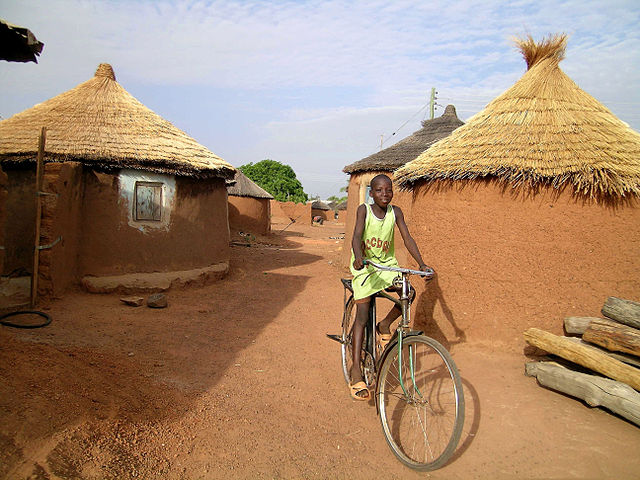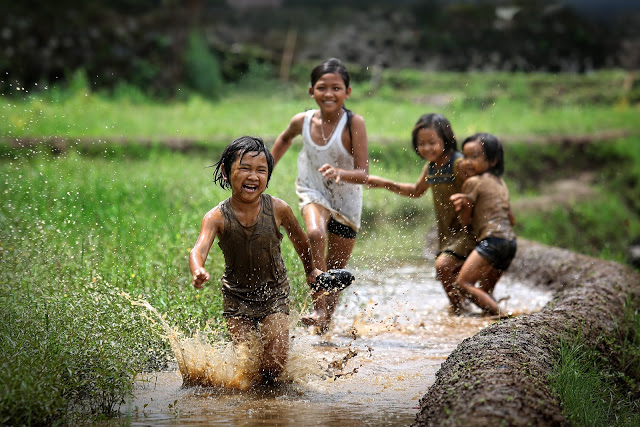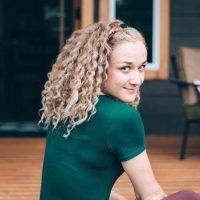Within a week of my birth, I was living in a vamped up ex-railway-station, in a wildlife reserve, with my conservation biologist parents.
You might think I’d end up a little mad. Of course not! I’m perfectly sane. 😉
When I was a wee babe, my mother would put me on the boob when lions were around, to keep me from becoming big cat fodder. Field work consisted of a pair of binoculars glued to her face and a baba in a blanket, on her back. I was a worthy field assistant, of course.
This is the sort of childhood I want for my own kids. I’d like to climb Mount K2 with a baby pack, instead of a rucksack. Not because I don’t like backpacks, but because that’s the kind of mom I’d like to be.
I write this for those wonderful humans who thirst for adventure, but feel they have to settle down to give their kids a “normal” childhood. I understand your dilemma. I would like to argue, however, that giving your children a rich life, filled with nature and wilderness, doesn’t have to exclude a well-grounded, well-rounded education. Finding the right place to live can provide a balance that gives both roots and wings.
I could probably fill a book with all the stories of my experiences, but in the interest of being succinct, I’ll keep it to just a few.
We moved to Namibia in 1990, when it gained independence. My mother tells me she was sickened by the institutionalized racism in South Africa, and wanted me to grow up where diversity was championed.
My parents are outdoorsy folk. We’ve done countless excursions to parts of the world where others aren’t allowed. Those deserts, mountains, river estuaries, penguin caves, caked with guano, (only reachable at low tide, by precarious hops between slippery rocks); the icy oceans that turn your skin blue…they’re in my bones, in my blood. The very fabric of my spirit. Those experiences taught me what it’s really like to be alive.
Wilderness runs right through my veins, thanks to the life my parents chose.
I am so grateful to them for choosing it. I am grateful for my mother’s sense of adventure. She’s jumped out of planes and climbed active volcanoes. She’s one of those crazies who gets excited by tornadoes and pyroclastic flows. Having seen footage, I can understand why. It’s given me a sense of respect and awe for nature. And the thrill of being alive.
If my parents had listened to all the cautionary tales warning them against moving to southern Africa and getting neck deep in everything that came with, I would not be the person I am today.
My parents were full of love and care, but they let me play in the mud. They let me adventure by myself and didn’t fret too much when I disappeared with friends. They gave me hugs and love when I came home, covered in scrapes and bruises from flying over my handlebars and landing on tar and gravel. But they didn’t fuss.

In fact, once, my Dad and I were cycling home from across town. I took a corner too fast and my bike came out from under me in a sprawl of chunky gravel. I was covered in nasty grazes that sent streams of bright red blood down my body. I shook like a leaf as adrenaline pulsed through my veins and my heart pounded in reddened ears. I wanted him to go get the car and drive me home. He knew this was not the first bad experience I’d had on a bicycle. With a gentle voice, he said, “No, Catherine. If you don’t get back on that bike right now, you might never get on a bicycle again. I want you to get back up on that seat and cycle the rest of the way home with me. You can do this. I’m here with you.”
I did so, without argument, and cycled all the way home. I’ve been a cycling fan, ever since. Thanks to my Dad’s quick thinking and grounded response. I know he’s there for me when I need him…even if it’s just to watch me be tough.
Namibia is desert country. It’s one of the most beautiful places on Earth. We have immense orange, yellow and red dunes, rivers and camel thorn trees (my favorite). These incredible landscapes are home to wild animals, like Gemsbok (Oryx), leopard and kudu. The clear night skies are alive with a spray of stars and planets. Perfect for a young girl and her father to talk late into the night about astrophysics and the ways of the universe. My Dad seemed to have good answers for everything.
My family often took field-trips to a place called Sandwich Harbor. To get there, we drove past massive saltworks, complete with vast pans which were pink, purple and turquoise from the microscopic creatures that live in them. We drove past towering dunes of white salt, into a slushy grey expanse where people had once broken down and lost lives from dehydration. The next part of the journey was crucial: we had to get the timing just right to make it through a long, thin sand corridor between the massive sloping dunes and the ice cold Atlantic. If we got stuck, if our timing erred, we ran the risk of getting swallowed by the rising tide.
We learned to plan ahead, to be self-reliant, and to keep a level head in tricky situations. We understood the importance of humility in the face of nature. We got stuck in some of the most remote places imaginable, and yet I don’t ever remember feeling fearful. There was always a solution.
I learned the importance of resourcefulness, ingenuity, level headedness and teamwork.
We were never washed away by the ocean or petrified by thirst on a cracked salt pan. We were prepared. We factored car trouble into our schedule. We saw it as a challenge. Hard work, but fun! Life lessons abounded.
No one lived near Sandwich harbor. There was one little green cabin near the lagoon where we used to stay. It was surrounded by bulrush reeds and had a matching outhouse which had a frighteningly dark long-drop toilet that was forever cold, damp, and full of grass. The peeling green paint flaked off at the slightest touch. I was exhilarated by fear by night time toiletry adventures. I learned to appreciate the thrill of little things, I never needed someone or something else to keep me entertained.
One year we caught fish in our bird net by pulling it from one side of the lagoon to the other as the tide went out. I remember rushing through knee deep water to pull flapping fish from the fine net as rays and sand sharks leapt from the water around me. We went back another year, to find a massive hole scorched in the middle of the floor. Some stowaways had been thrown overboard on a nearby ship months before. They had swum ashore and tried to make a fire indoors. Jackals later made the hole their den. From then on, we camped out in the dunes in canvas tents, instead. I wish I had appreciated those years more. Another lesson, in retrospect.
We once went to a place called “Bushman Land,” after the rains. The air was thick with winged termites and fungus smells. I went on a long walk by myself and got lost. A throng of local kids tracked my heavy boot prints, and found me, just after dusk. One cannot scoff at the kindness, resilience and preparedness that one learns from strangers. Self-reliance and bush skills are excellent tools. Humility and interdependence are others. Everyone knows something we can learn from. Treat everyone with grace respect. No matter how different they are.
There were dusty river beds that ran alongside our little suburb in Namibia’s capital, Windhoek. Some years, they burned with fires that reached high into the sky, fueled by gumtree resin. Our family, and many of the other locals, would rush out with wet mops, rugs and buckets to douse the flames. Other years, flash floods washed through, making rivers in the streets, deep enough to swim in.
My point to you, I guess, is that there are priceless benefits in raising children in alternative ways. Ways that champion adventurous spirits. I had a full education, and was lucky enough to go to some of the best schools. But I would not have the level of self-awareness, resilience and love of nature that I do now if I’d lived in the city or suburbia my whole life. I feel my alternative upbringing gave me a deeper sense of balance and groundedness than many of my peers, perhaps because our primordial selves yearn for a more natural existence—a sense of connection with nature, with other people, with animals, with ourselves.

In immersing ourselves in the natural world, we develop a greater sense of how small and insignificant we are, how much we depend upon for our existence—how incredible life is, how much we have to be thankful for, how silly all the fussing and fighting is, how uninteresting gossip and the grape vine really are in the whole scheme of things.
Adventure helps develop a sense of self, passion, and love, a sense of the worth of things—the worth of the environment, the worth of people, animals, resources, time. These things can be taught in a classroom, or in a magazine, perhaps, but they are viscerally understood out in the big wide world.
In this crazy world, I fear the thing we lack most is a sense of perspective. I find that being out in nature and being forced to surrender to the elements, to the journey, is a mighty lesson. We are strong and resilient and capable. But we are also fragile.
Kids who grow up learning this will undoubtedly have a respect for nature and their fellow man because they come to understand this through experience, through immersion and not merely theory.
Kids who grow up in a world where everything is computerized and televised and handed to them on a platter…I don’t think they really get it. You know?
If I ever have kids, I’m going to do my best to give them the same wild ride that I had. Scrapes, mud, car troubles, and all! I wouldn’t have it any other way.
~
Author: Catherine Simmons
Images: pixoto.com / wiki commons / Angga Agathakanaya
Apprentice Editor: Devin Mudcat Kelly: Editor: Travis May


 Share on bsky
Share on bsky





Read 4 comments and reply